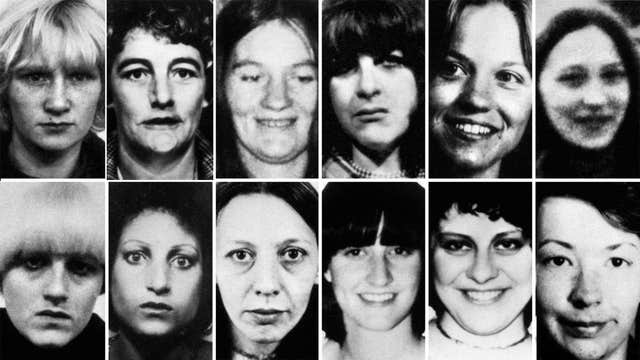A coroner hoped serial killer Peter Sutcliffe’s death from Covid-19 would allow his victims to “better rest in peace”.
Sutcliffe, also known as the Yorkshire Ripper, had been warned he was a prisoner vulnerable to coronavirus by the authorities at Frankland Prison, near Durham, but he declined to be shielded behind bars.
Coroner Crispin Oliver, sitting in Crook, County Durham, was told Sutcliffe died aged 74 at the University Hospital of North Durham at 1.45am on November 13 2020.
His health had deteriorated and he had been transferred four times between the prison’s healthcare unit and hospital in the days leading up to his death.
There were no suspicious circumstances, the coroner found, and Sutcliffe had received equivalent healthcare to someone who was not an inmate.
Mr Oliver said: “Peter Sutcliffe is now dead, he died a natural death having received good medical care.
“Obviously I think of his family at this time, but (my thoughts) also return to those women whose names I read out at the opening of this inquest last November – they were his victims.
“My continuing best wishes go to their families, loved ones and friends.
“Speaking to the victims’ families, loved ones and friends, I hope you have some sense of closure at this point and that your loved ones, the victims, may better rest in peace now that Peter Sutcliffe is dead.”
Sutcliffe, who changed his name to Coonan, was serving a life sentence at HMP Frankland for the murders of 13 women in the 1970s, and was suffering from heart disease, diabetes and kidney disease.
One of his last acts in prison was to fall from his bed when trying to change the channel on his television, the inquest heard.
He did not suffer any injury in the fall which happened before he was admitted to hospital for the final time.

The killer was first taken to hospital after feeling dizzy on October 27 and being diagnosed at the prison’s healthcare unit with a blocked heart.
He returned to Frankland on November 4 and it was after this first hospital stay that he tested positive for Covid-19.
The prison’s head of healthcare Angela Spence said Sutcliffe was treated with antibiotics for a cough and tests showed he had a rapid heart rate.
Prison governor Lee Drummond said Sutcliffe went in and out of hospital in the coming days, before being admitted a final time on November 10.
His next of kin – ex-wife Sonia Woodward – had been informed of his deteriorating health and eventual death, the inquest heard.
She was aware of the inquest and was invited to attend either in person or remotely, but declined, the coroner heard.
Mr Drummond said vulnerable prisoners had been warned of the dangers of the virus when the country locked down in March last year.
They were offered measures similar to shielding in the community, being kept apart from other inmates at meal times and to use the phone separately, but Sutcliffe had turned them down.
Mr Drummond said Sutcliffe was considered a retired prisoner, meaning he did not have to work unless he wanted to, and his health stopped him from doing tasks.
Sutcliffe, who arrived in 2016 after being held at Broadmoor secure psychiatric hospital, was a category A prisoner and was held on Alpha wing – “a more relaxed environment” for prisoners with mobility issues.
Sutcliffe’s crimes terrified northern England in the 1970s, but Mr Drummond said: “For such a high-profile prisoner he was very unassuming and went about his daily business.”
Detective Constable Alistair Rogowski investigated Sutcliffe’s death, a routine process for the police when a prisoner dies behind bars.
He said the prison’s Covid lockdown meant it was impossible to investigate his cell, but there was no evidence to suggest anything other than a death from natural causes.
Pathologist Dr Clive Bloxham, appearing via video, said his post-mortem examination revealed Sutcliffe had “extremely heavy lungs” – typical of someone with coronavirus.
He said the cause of death was Covid-19 infection, with heart disease and diabetes contributing.
He confirmed the death was not suspicious and was from natural causes.
